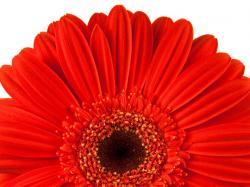Some December Precautions From Delaware Valley Wholesale Florist
December 10, 2010 | 2 min to read

As we head full steam into the holiday season there are a few factors that come into play every year.
Some varieties of flowers that are planted by farms produce for 2-4 years, before they are replanted. These plants will produce the same amount each week of the month all year long. A farm will always plant what they feel will sell every month throughout the year. This is why we will always see shortages and increased prices on many items. Some factors, in particular the weather, will slow down production.
This industry is and will always be based on supply and demand. When there is a great demand for a product that only produces a set amount and there is no way to turn up production, we experience very high prices and limited availability.
Some varieties of concern: This may not be a complete list.
•Peppermint Carnation and Mini-Carnations, many novelty varieties.
•White Statice, White Limonium and other colors except purple, which is in high demand all year long.
•Matsumoto Aster Red or other novelty colors. Pink and purple are grown in much larger numbers, because they have strong demand all year.
•Gerbera Daisy, always very high prices and limited production on seasonal colors. How much red can they sell in March – September?
•Alstroemeria, same as Gerbera.
•Novelty varieties of Chrysanthemums.
•Rose farms implement what’s called the pinch in early November; it is to prepare for the large volume required for Valentine’s Day. When they pinch they throw away buds that would be roses sold. They spend allot of hours and labor preparing for February while throwing out what would be sales for roses. This causes limited production during the time when December demands more red roses and spray roses. All roses are affected, but we feel it mostly on red and white.
•Larkspur goes off-season for most of December and January.
•Stock shortages, due to weather, even though the larger growers move their fields to the desert-growing region.
•White lily prices start to climb, especially hybrids, same for Valentine’s Day.
Source: Delaware Valley Wholesale Florist
